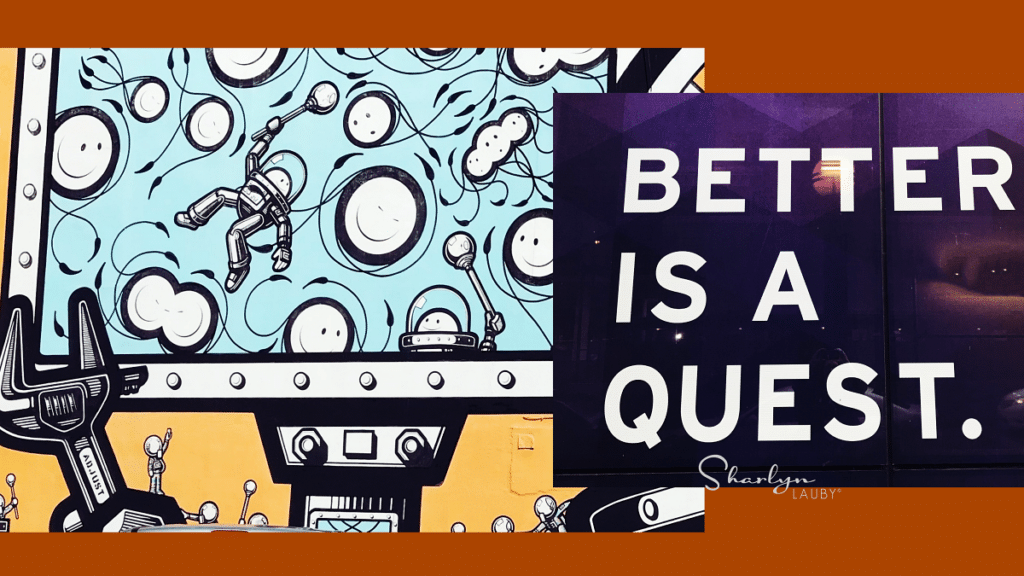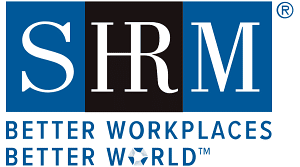Estimated reading time: 5 minutes
A few years ago, I published an article on “Everything HR Needs to Know about Artificial Intelligence”. I hope you’ll check it out. The purpose of the article was to explain what artificial intelligence (AI) is and how it might be used by HR departments. Since then, we continue to see articles about advancements in AI. The most recent being focused on ChatGPT, an AI chatbot.
We’re not going to do a deep dive into ChatGPT today, but with all these new technologies, it’s important for organizations to think about how AI might integrate with their operation. That’s why I was excited to see that the Society for Human Resource Management (SHRM) introduced a new event focused on technology. SHRMTech took place in early March in San Francisco. I wasn’t able to attend, but Tim Sackett had a nice recap on his site.
To learn more about the event and the role AI can play in our workplaces, I reached out to Guillermo Corea, managing director at SHRMLabs, the workplace innovation lab and venture capital arm. In his role, Guillermo leads the effort to define how automation, artificial intelligence, collaboration, decision making, and sustainability will impact the workplace in the next 10-20 years.
Guillermo, thanks for chatting with us. Let’s take the AI conversation beyond a definition. Why should HR be excited about AI?
[Corea] There’s a lot for HR to be excited about regarding artificial intelligence (AI). Integrating AI into the hiring process can aid in the reduction of hiring and onboarding queues, smoothing the hiring process overall. In SHRM’s Automation & AI in HR report, 2 in 3 respondents said the time it takes to fill open positions is somewhat better (53%) or much better (16%) using automation or AI. Our data shows that employers are engaging with higher quality candidates because of AI.
In contrast, are there any specific pitfalls or concerns that organizations need to be focused on, especially in today’s business environment?
[Corea] Just like any innovation, there are possible challenges that this can present to HR. First, it can limit the ability of HR to set talent and skills pipelines. Second, the use of AI doesn’t necessarily limit the biases that exist in the AI space. Our research found that only 2 in 5 employers who source using this method stated vendor transparency in ensuring bias protection. And third, there is a concern that the HR profession will lose the innovation needed to keep up with workforce and workplace demands.
Over the past couple of months, there have been many articles about ChatGPT. When new technologies – like ChatGPT – are introduced, how can organizations encourage learning more about them while at the same time make sure that the company’s safety and security protocols remain in place?
[Corea] In SHRM’s research, we found that it’s primarily larger companies with 5,000+ employees utilizing AI as a tool (42%), with just 16% of smaller companies (0-100 employees). While automation can deliver HR value, HR must realize that these tools are still new, and the potential pitfalls are still being discovered. We need to be assured that the tools do not lead to bias in the hiring and performance assessment processes of HR. The Equal Employment Opportunity Commission (EEOC) launched an agency-wide initiative to ensure AI systems comply with civil rights law to ensure safety and security in the hiring process.
If HR is looking to introduce AI into their processes, where is a logical place to start?
[Corea] Our research indicates that the top two areas where organizations will start using / expanding automation or AI are:
- Recruitment / hiring (25%)
- Performance management evaluation (20%)
For HR departments looking to integrate AI into their workforce, the key is to obtain knowledge of the gaps in their administrative process and how automated tools can help the efficiency and efficacy of that process.
Great point about revisiting policies and procedures. As organizations are introducing new technologies which contain an AI component, are there any specific company policies – like ethics, technology, etc. – that should include an AI mention?
[Corea] The steps taken will be up to the organization, depending on the tools implemented and where their office(s) are located. We recommend that organizations track ongoing legislation around AI in the workplace (local, state, and federal) to ensure compliance.
Last question. Technology continues to advance quickly. You mentioned earlier that organizations should track trends to ensure compliance. Can you share any resources that organizations might want to check out?
[Corea] The modern workplace is constantly evolving and adapting to new challenges. Our goal in producing SHRMTech23 is for it to be one of the many ways HR leaders/decision makers can stay on top of the latest HR technology trends. This conference adds to the SHRMLabs programs portfolio, whose mission is to elevate HR as the thought leader in workplace innovation.
This year, at SHRMTech23, we explored disruptive technologies HR can use to help solve some of the most pressing workplace challenges faced today. Some of these technologies include AI, voice, HR blockchain, and virtual reality. These technologies can improve processes, increase efficiency, drive business growth, and ultimately, make HR more strategic.
Other SHRM programs include the WorkplaceTech Accelerator and the Better Workplaces Challenge Cup.
A huge thanks to Guillermo and the SHRM team for sharing this information. If you’re looking for ways to stay on top of HR technology, consider adding some budget dollars for next year’s SHRMTech event. I’m sure there will be plenty of new technology to discuss.
One thing I’d like to add to Guillermo’s comments. An increasing number of candidates and employees are coming to expect modern technology in their work experience. Old technology can be an obstacle to productivity, talent management, and recruiting. Organizations don’t have to be early adopters of every new technology, but they should understand the trends and strategize about what it means for their operation. Being an effective adopter of technology is good for the business.
SHRM logo used with permission.
The post Organizations Need an Artificial Intelligence Strategy appeared first on hr bartender.





0 Commentaires